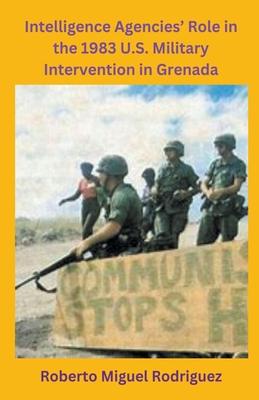"Intelligence Agencies' Role in the 1983 U.S. Military Intervention in Grenada" presents a thorough and analytical examination of the often-overlooked intelligence aspect of this significant Cold War-era conflict. Drawing upon declassified documents, government reports, historical archives, and expert analyses, the book offers an in-depth exploration of how intelligence gathered by agencies like the CIA and NSA shaped the United States' decision-making and strategy during the intervention.
The book begins by setting the geopolitical context of the early 1980s, highlighting the tensions of the Cold War and the strategic importance of Grenada at that time. It then delves into the specific events leading up to the intervention, including the internal political turmoil in Grenada and the perceived threats to U.S. interests.
Each chapter focuses on different elements of the intelligence operations, from signal interceptions and satellite reconnaissance to human intelligence and covert activities. The book provides a detailed account of how information was gathered, analyzed, and ultimately used to inform military tactics and diplomatic strategies.
The narrative also critically examines the effectiveness and accuracy of the intelligence collected, discussing both the successes and failures of these efforts. It explores the controversies and debates surrounding the intervention, particularly the role of intelligence in justifying the invasion, and the lessons learned by the U.S. intelligence community.
"Intelligence Agencies' Role in the 1983 U.S. Military Intervention in Grenada" is a comprehensive and insightful resource for students of military history, intelligence studies, and Cold War politics. It offers a unique perspective on this key historical event, shedding light on the critical but often underappreciated role of intelligence in shaping international military actions.
